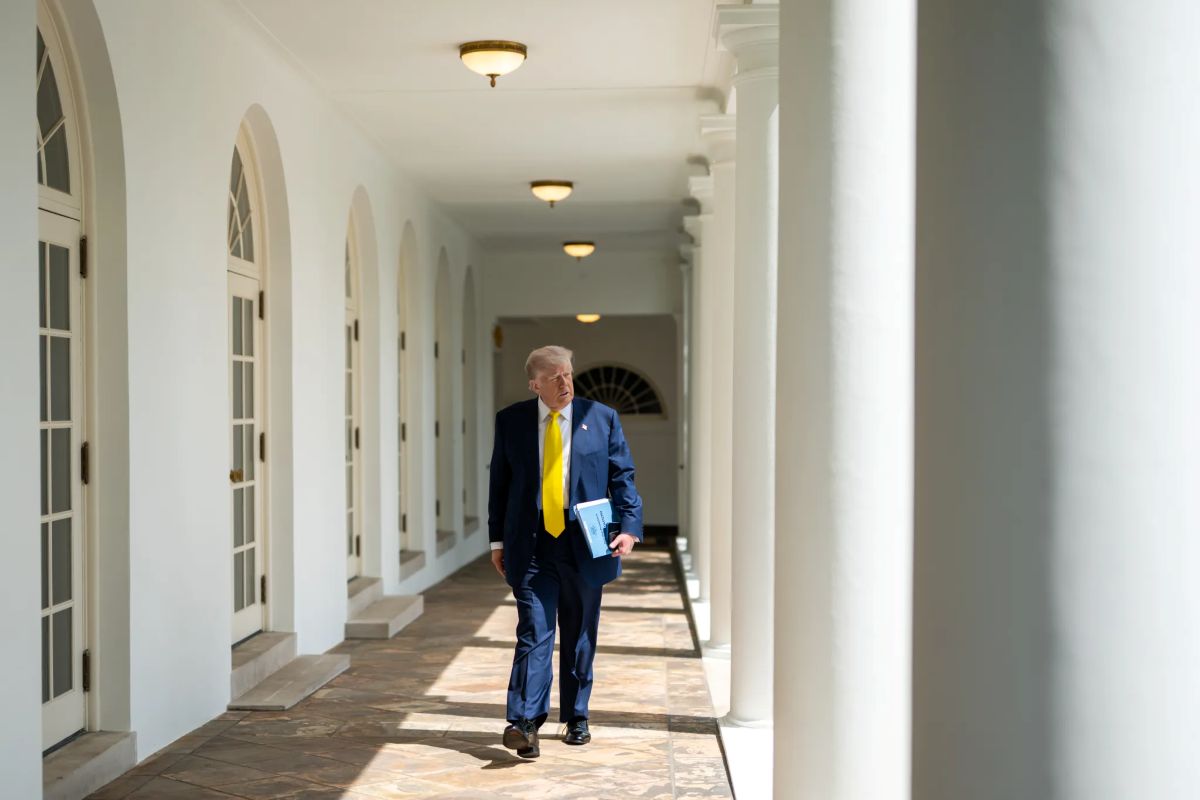Nathalie Rose Jones, a 50-year-old resident of Lafayette, Indiana, was arrested on August 19 in Washington, D.C., after allegedly making threats against President Donald Trump on social media. The U.S. Secret Service reported that Jones made a series of posts threatening to kill, kidnap, or injure the President.
Explainer Trump Designates Antifa as Domestic Terrorist Organization Amid Protests in Oregon
According to a statement from the Secret Service, Jones posted on Facebook on August 6, expressing her willingness to kill Trump in graphic terms. She reportedly wrote, "I am willing to sacrificially kill this POTUS by disemboweling him and cutting out his trachea."
The Secret Service conducted a voluntary interview with Jones on August 15, during which she described Trump as a "terrorist" and a "nazi." She allegedly stated that if given the opportunity, she would take the President's life, claiming she had a "bladed object" to carry out her intentions. Jones attributed her motivations to her belief that Trump was responsible for deaths during the COVID-19 pandemic.
On August 16, Jones participated in a protest march around the White House. Following the event, she was interviewed again by the Secret Service, where she admitted to making threats against Trump. Law enforcement subsequently arrested her, and she confirmed ownership of the Facebook account where the threats were posted.
U.S. Attorney Jeanine Pirro emphasized the seriousness of the threats, stating, "Threatening the life of the President is one of the most serious crimes and one that will be met with swift and unwavering prosecution. Make no mistake — justice will be served."
Critics have pointed out that major news outlets, including CNN, MSNBC, ABC, NBC, and The New York Times, either did not report on the arrest or buried it in their coverage. This has led to allegations of media bias, with some suggesting that the press would have reacted differently had the threats been directed at a Democratic president.
The Washington Post eventually reported on Jones's arrest, but the headline was criticized for downplaying the severity of her threats. The article referred to her as a woman charged with making death threats against Trump, rather than highlighting the graphic nature of her statements.
Jones's case has drawn comparisons to previous incidents involving threats against Trump. In July 2025, Thomas Matthew Crooks, 20, shot at Trump during a rally in Pennsylvania, while Ryan Wesley Routh, 58, allegedly stalked Trump at a golf club in Florida, pointing a gun at him. Both incidents received significant media attention at the time.
Jones's actions have raised concerns about political violence and the potential for threats against public officials. The Secret Service continues to monitor such threats closely, maintaining that they will respond decisively to any credible danger to the President.
As the investigation continues, the implications of Jones's threats and the media's response to them remain a topic of discussion among political commentators and the public alike.
Why it matters
- Nathalie Rose Jones's arrest highlights ongoing concerns about threats against public officials, particularly the President.
- The case raises questions about media bias in reporting threats against political figures, especially in the context of Trump's presidency.
- Jones's graphic threats and subsequent arrest underscore the serious nature of political violence and its implications for national security.
What’s next
- The U.S. Attorney's office will pursue prosecution against Jones for her threats, emphasizing the seriousness of such crimes.
- Investigations into the media's coverage of the arrest may prompt discussions on journalistic standards and bias.
- Public forums may arise to address concerns about political violence and the safety of elected officials.
